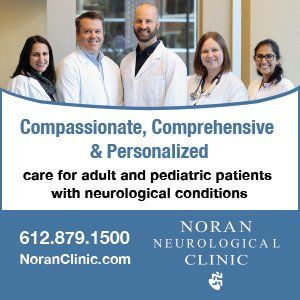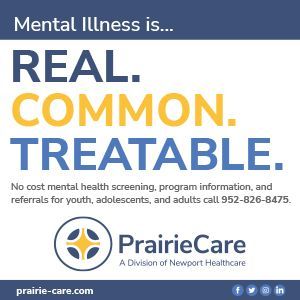ith a burgeoning senior population and longer life expectancies, new thought is needed for senior care models, none more so than in the treatment of Alzheimer’s and other forms of dementia. A recent report from the Alzheimer’s Association found that 92% of primary care physicians (PCPs) find that patients and their caregivers consider them to be front-line advisors on dementia care, and so being conversant with best practices is essential.
Senior Care
Addressing Memory Loss
Advance planning and holistic care
BY Joshua Wert
“The perspectives of PCPs raise an important alarm regarding the current reality and future of dementia care in this country,” said Joanne Pike, Doctor of Public Health and Chief Program Officer of the Alzheimer’s Association. “The number of Americans living with Alzheimer’s and other dementias is increasing, and primary care physicians are telling us the medical profession is not yet prepared to meet the future demand.”
Adding to the problem, as summarized in the 2020 Alzheimer’s Disease Facts & Figures study by the Alzheimer’s Impact Movement (AIM), nearly 25% of all PCPs had no residency training in dementia diagnosis and care, and two-thirds with training reported the amount to be very minor. Thirty-nine percent of PCPs say they are never or only sometimes comfortable making a diagnosis of dementia.
Nearly 25% of all PCPs had no residency training in dementia diagnosis
Factors that further complicate the issue:
Most seniors are reluctant to report memory problems to their doctors, hindering early diagnoses and supportive care planning. As a result, PCPs must often depend on family members to bring signs of cognitive decline to their attention, but they too fear the consequences of a loved one’s receiving a dementia diagnosis
Doctors may not see memory issues as a primary concern when patients have multiple co-existing ailments. And some memory issues can be attributed to reversible conditions such as sleep apnea or thyroid disease.
Objective tests that can pinpoint whether symptoms are being caused by early Alzheimer’s – such as brain scans and spinal fluid tests to detect amyloid levels – are not typically covered by insurance. Moreover, there’s a shortage of memory clinics and specialists to treat Alzheimer’s, such as neurologists and geriatricians. To meet the ever-growing amount of dementia patients in the U.S, a nearly 200% increase in geriatricians will be needed in the next 25 years.
As a recognized leader in memory care innovation for over a quarter century, English Rose has three recommendations to help PCPs help patients experiencing cognitive decline:
Employ a Recurring Diagnostic Process – “Dig Deep”
When a person begins to show signs of cognitive decline, it’s most beneficial when physicians use a recurring diagnostic process rather than a one-and-done battery of tests before deciding whether a patient’s symptoms are the result of the normal mild cognitive impairment (MCI) that often accompanies aging, are a product of an episodic ailment that temporarily impacts cognitive functioning, or qualify as a form of dementia. It’s important to know the difference because the care approach is dependent on the underlying causal reason for the cognition decline.
A meaningful share of families who contact English Rose for an initial care consultation are working with an incorrect medical assumption based on a single doctor visit. In March 2023, we met three siblings whose 79-year-old father was living with a level of dementia that, twelve months prior, they had been told was normal MCI. Because of the underdiagnosis or false negative, the family failed to educate themselves on how best to promote their father’s well-being. By the time they contacted English Rose, he hadn’t showered in several months and was in the hospital after a late-night accident involving a lawn mower. More recently, we worked with an 82-year-old man whose dementia diagnosis in an assisted living facility was incorrect. It proved to be an overdiagnosis or a false-positive. Within days we discovered that he was suffering from an untreated but easily remedied urinary tract infection. A week later, it became clear that his cognitive decline had been episodic and thus did not need to live in a memory care environment.
The risk of a dementia misdiagnosis is proceeding with an ill-fitting care plan that ultimately diminishes an individual’s health progress. When circumstances permit, physicians should refer families to neurologists or geriatricians who specialize in dementia diagnosis. They can then follow up to ensure such appointments are met and review the resulting findings. When diagnosing dementia without the involvement of a specialist, it is recommended to meet in person with the patient on a recurring basis every 8-12 weeks. Through thoughtful interviews, the use of their preferred suite of cognitive tests, and discussions with close family members, doctors can observe subtle cognition changes that occur over time, help families overcome their reluctance to talk about memory issues and discuss the importance of early intervention and planning.
Help Families Avoid Crisis Decision-making
Most families develop a care strategy for their loved one during a crisis. Mom gets lost while driving. Dad falls and breaks a hip. A hospital refuses to release a patient back to his or her assisted-living residence. Suddenly, major decisions must be made quickly. But the memory care landscape is very complex. Choosing the right path requires consideration of numerous factors and thoughtful consideration about how these factors apply to the unique circumstances of the individual living with dementia.
Families in crisis are especially unprepared to engage in an appropriate level of due diligence because of pressing time constraints and their state of mind. They are often consumed by stress as a result of the crisis and processing guilt about making such a major decision for a loved one. Financial considerations and complicated family dynamics add to their duress.
The tragedy is that these emergency situations are totally avoidable. Families that embark on a care exploration journey long before they are forced to make decisions experience far better outcomes because they have an informed plan that can be calmly deployed when the time is right.
There are already too few beds and not enough caregivers to accommodate patients with dementia, and with more than 10,000 people turning 65 every day in America, caring for a growing population living with memory loss will be an ever-increasing challenge for our health care system. The scarcity in care resources will most negatively impact families who don’t have a care plan in place.
Most seniors are reluctant to report memory problems to their doctors.
The best way doctors can help their senior patients is by convincing their families to explore care options and develop a care strategy before a health or safety incident occurs. As the primary trusted advisor when it comes to health, primary care physicians are in a unique position to not only discern cognitive decline, but also convince families that they need to develop a care plan while they have the time and bandwidth to make thoughtful decisions.
Given the myriad demands on their time, doctors do not need to directly provide care education and planning services to families. Instead, they should be ready to offer guidance on how families can start the process by providing them with an up-to-date and vetted list of available resources and care consultants who help families develop a customized care plan that reflects their unique preferences and circumstances.
Advocate for a Holistic Approach to Wellbeing
An easy response to cognitive decline symptoms is to prescribe medication. While medicine’s role in treating dementia has its place, side effects and overuse will deteriorate a person’s health and wellbeing.
The key to successful dementia care is helping the individual live as familiar and energized a life as possible. But antipsychotic drugs are sedatives that lower energy and remove motivation. They are usually prescribed to reduce anxiety and excessive expressions of energy, common symptoms of cognitive decline.
But the driver of these challenging behaviors is not the disease itself. Rather, they are a result of boredom, understimulation, loneliness or the lack of a compassionate care provider that knows how to keep a person with dementia calm and engaged in life. Facilities that encourage patients to sleep the day away and use sedative drugs to keep their environment peaceful are warehousing rather than caring for their residents.
Dementia is not a death sentence. Those living with memory loss need to alter their day-to-day habits, but they can still enjoy a life full of meaning and purpose. A successful care model embraces this fact, minimizes the use of antipsychotic drugs and uses a multifaceted definition of wellbeing that integrates social, intellectual, physical and spiritual modes of care and engagement. The goal is to bring everyday normalcy to the life of a person living with dementia.
This approach creates tailored care plans that are as unique as the individuals themselves, as illustrated in these examples:
- Learning to Listen – Marilyn, deaf since birth, came to us from a large memory care facility where she spent every day alone in her room. Our care team met with her children to learn about Mary’s amazing life story and understand how best to communicate with her. Because this was during the pandemic, caregiver masks were replaced by clear face shields so that Mary could read lips. We also brought in sign language flash cards as conversational prompters. Mary no longer slept her days away. Having spent most of her life as a homemaker, she enjoyed cooking and baking with our caregivers, and took great pride in teaching them how to better fold laundry. She also taught her caregivers sign language, which they loved and which improved their communication skills.
- Teaching by Trade – Suzzanne was living at home with dementia and had recently suffered a stroke, exacerbating her memory loss and requiring her to move out of the long-standing home she shared with her husband. She arrived depressed and resentful. Our relationship-driven caregivers encouraged her to share her frustrations and empathized with her situation. They also learned that she loved to garden, valuable information in the development of her customized care plan. Suzzanne was soon designing and overseeing the construction of a new garden in the backyard! She curated and planted the flowers herself, including lavender, which was used in the home for its aromatherapy benefits. A primary school educator by profession, she loved teaching caregivers and fellow residents how to maintain the garden as well as how to pot plants to fill the home with greenery all winter long. By leaning into her favorite hobby and returning to her role as an educator, Suzanne regained a positive sense of meaning and purpose that allowed her mood and quality of life to blossom.
- Meetings & Moving – Richard was a newly-retired real estate executive looking forward to embarking with his wife on a three-month travel adventure when he received the shocking diagnosis. His recent sleep disruption, tendency to get easily frustrated and uncharacteristic aggressive behavior were a result of early onset dementia. Despite the quick pace at which his cognitive decline progressed, we were able to provide Richard with total relief from these symptoms by designing a care approach that focused on physical exercise and tapped into his business background. Richard played football in college at Princeton and remained physically active throughout his life. Our caregivers went on invigorating walks with Richard during the summer months, often stopping at the nearby park to throw a football. To ensure he stayed active during winter months, we had his personal workout equipment and exercise bike moved into his residence. We coordinated weekly visits by former business colleagues and asked them to seek Richard’s advice on real estate transactions. These visits always filled him with tremendous pride. Richard also regularly attended morning caregiver meetings, offering his opinion on all topics and always concluding by thanking everyone for their participation. Richard’s understanding of what was going on around him was in constant decline, but his individualized care plan kept him calm and happy throughout the entirety of his life with dementia.
Having specialized in memory care for over 25 years, we have seen that Alzheimer’s and other forms of dementia are not often best treated with sedative medications. Rather, a successful care plan engages the individual in meaningful experiences and activities that energize them for as long as possible. So, physicians need to impart upon patients and their families a holistic rather than purely medicinal approach to health and well-being. People living with dementia may be losing their memories, but they do not lose their ability to live a life full of purpose. With compassionate and professional caregivers employing well-proven holistic care modalities, someone living with dementia can continue to enjoy authentic relationships and a meaningful life of value.
Joshua Wert, is CEO of English Rose, a Twin Cities care provider specializing in Alzheimer’s, dementia, Parkinson’s and complex medical conditions. Founded in 1997, English Rose offers memory care, assisted living, home health care and care consultations. For more info, visit www.englishrosesuites.com.
MORE STORIES IN THIS ISSUE
cover story one
Navigating Drug Shortages: Preparedness and patient advocacy
By David J. Margraf, PharmD, PhD and Stephen W. Schondelmeyer, PharmD, PhD
cover story two
The New Noncompete Agreement Laws: What they mean for physicians
By Jennifer A. Forbes, JD and Benjamin J. Kramer, JD


















